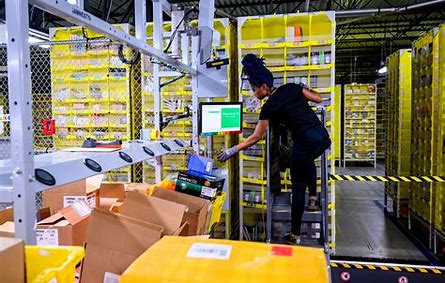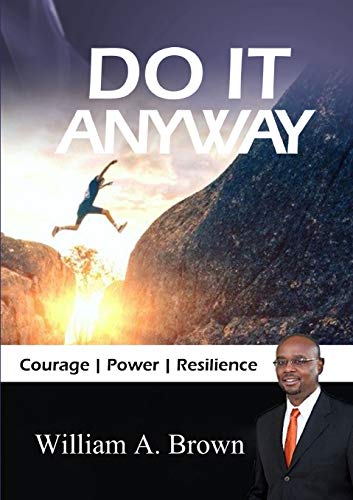Article-Detail

People Are The Most Important Thing
On September 2, 2019, Billy Foister, a 48 year old stocker in the Amazon warehouse in Etna, Ohio was overcome by pains in his chest. He tried to continue working through the pain as he had for over a week but on this day, the pain knocked him off of his feet. He lay on the ground in that busy warehouse for over 20 minutes before anyone stopped to check on him. Just a week prior to his collapse, he went to the AmCare (medical) center at the Amazon site complaining of chest pain and a headache. He was told that he was dehydrated, given two drinks, and told to return to work.
Billy’s brother, Edward, was shocked that a 6’3” man could lie on the ground “and no one help him for 20 minutes.” Edward’s feeling is supported by a story Billy shared with him, a few days earlier (between Billy’s AmCare visit and his collapse), Billy was observed via camera putting an item in the wrong box and within two minutes was confronted with the mistake by a supervisor in person. On September 2, 2019, it wasn’t until a safety responder doing his rounds noticed Foister lying on the ground that he was given care and emergency responders contacted. Later that day, Billy Foister was pronounced dead.
The Postal Reorganization Act signed by Richard Nixon on August 12, 1970 changed the post office from a government service to the people, to a self sustaining business. What was the United States Post Office Department became the United States Postal Service, an independent (like) business with a monopoly on the delivery of the mail. Government funding was replaced by the pursuit of profits by a harsh bureaucracy. Employee treatment suffered and employee morale plummeted. To that point, employment at the post office was part of the American lexicon, people in all communities could be heard encouraging young adults by saying, “they’re hiring at the post office”. After the Postal Reorganization Act, employees reported mistreatment by their managers and supervisors that included yelling, hitting, sexual harassment, discrimination, and retaliation for filing complaints. There appeared to be no protections for employees who experienced or witnessed one or all of these acts daily.
Not long after the 1970 change, employees began acting out, or to use the term of the 1980s, “going postal”. In the most extreme cases, employees would arrive at work armed, shoot their supervisors and sometimes others, then either commit suicide or surrender to the police. The similarities between the old Post Office and today’s Amazon are striking. One difference is that Amazon employees haven’t yet endured a decade of intense stress. Post office employees often complained about their working conditions and how they were forced to work through injury or have their status reduced or be dismissed. Amazon employees were told within 20 minutes of Billy Foister’s body leaving the facility to get back to work.
A heart attack, or even “going postal” is a symptom of extreme stress endured for an extended period of time. That people in positions of authority can see it happen and not respond suggests the cause of that stress. In the Amazon warehouses, casino style camera supervision is common. This surveillance made it possible for management to instantly determine that Bill Foister placed the wrong item in one of their bins and enabled them to respond to this mistake in 2 minutes. That the employee could lie on the ground and not recieve care for 20 minutes is an indicator that work is more important than people. The fact that employees have died at this and other warehouses in the past suggest that this culture is systemic throughout Amazon, and just like the U.S. Postal Service in the 1970s and 1980s, horrific consequences are predictable. In 2011, Amazon had 30,000 employees. In 2016, Amazon had 180,000 employees. In 2017, Amazon grew to 566,000 employees world wide. At that scale, with intense pressure to produce profits, it’s easy for people to become abstract to management and their treatment and complaints reduced to a murmur. While Jeff Bezos cannot oversee every manager on every shift in every warehouse, he will bear the consequences if things don’t change.
In 2019, the National Council for Occupational Safety and Health added Amazon to its “Dirty Dozen” list of most dangerous places to work in the U.S. Psychologists who study stress will say that it won’t be long before we see destructive behavior by Amazon employees up to and including “going postal”. The most important thing is the people, treat them like they are the most important thing and reduce harmful stress and you reduce its harmful consequences. Keep in mind, all work produces stress, people can deal with a normal amount, and over a 30 year career can be quite productive. An unhealthy amount of stress leads to reduced productivity, lawsuits, and harmful behavior. It's predictable according to available science.
This isn’t an article to convince you or anyone else to avoid doing business with Amazon, just to bring to light the consequences of poor employee treatment. People who study stress don’t have to investigate the Etna warehouse, Amazon, or the Postal Service, they look at the health condition and behavior of front line staff. The same is true at your place of work. Treat them like they are the most important thing and your organization will SOAR!
William A. Brown
March 8, 2020
https://www.theguardian.com/technology/2019/oct/17/amazon-warehouse-worker-deaths





Comments : I worked at a Glass plant in Calif. all they wanted was production no matter what the Employee was going through.They would hold up two fingers that meant(Do you want to pull a double? I would hold up one finger, you know which one that was(lol
03-08-2020